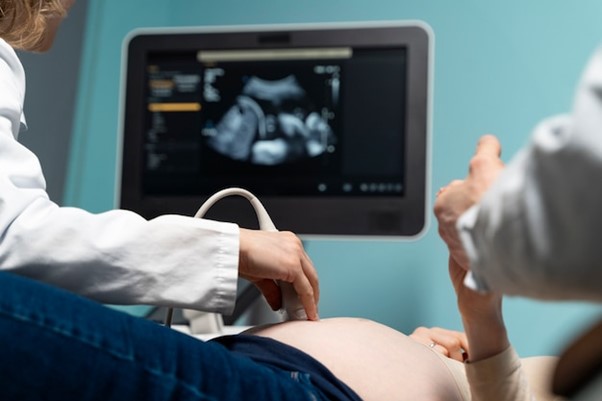What is a Nuchal Translucency Scan?
(Fetal Ultrasound During Pregnancy)
A nuchal translucency scan is a pregnancy ultrasound scan that is performed to measure your baby’s nuchal translucency (a fluid-filled space behind your baby’s neck).
This helps the doctor estimate the risk of chromosomal abnormality such as Down syndrome in your baby.
Why is a Nuchal Translucency Scan Performed?
All babies have fluid behind the neck. A nuchal translucency scan is performed to have a look at the space in the back of your baby’s neck, which is called the nuchal fold.
The doctor will check for the fluid at the nuchal fold, and if more fluid tends to build up at the base of a baby’s neck, it indicates a chromosomal or genetic condition.
The NT scan will screen for:
- Down syndrome (trisomy 21)
- Trisomy 18 (Edward’s syndrome)
- Trisomy 13 (Patau syndrome)
- Other chromosomal abnormalities
- Other structural problems, such as heart, abdominal wall, and skeletal defects
If your baby’s nuchal scan indicates that they are at an increased risk for structural defects, a special ultrasound (advanced level or level II ultrasound) and a fetal echocardiogram are performed in the second trimester.
You will also need to be monitored with regular ultrasounds and delivered carefully.
How to Prepare for the Nuchal Scan?
You need to keep your bladder full an hour before the test to give the best ultrasound images.
Drink 2-3 glasses of water to keep your bladder full.
DO NOT urinate before the scan.
When is the Nuchal Scan Performed and What to Expect?
The Nuchal scan is carried out from 11 weeks – 3 days to 13 weeks – 6 days (between the 11th to 14th week of pregnancy).
It can be done earlier during pregnancy than amniocentesis (another test that checks for birth defects).
A Nuchal scan is one of the most important scans in pregnancy and is recommended for all women.
Nuchal Scan: What Do the Results Indicate?
Normal Results
A normal amount of fluid in the back of the neck lowers the risk of disorders.
Nuchal translucency measurement increases with gestational age (between conception and birth).
Low-Risk Nuchal Translucency Measurements
• At 11 weeks- up to 2 mm
• At 13 weeks, 6 days- up to 2.8 mm
Abnormal Results
More fluid than normal in the back of the neck indicates a higher risk for disorders.
If the result is abnormal, other tests like amniocentesis (another test that checks for birth defects) are done to confirm the condition.

